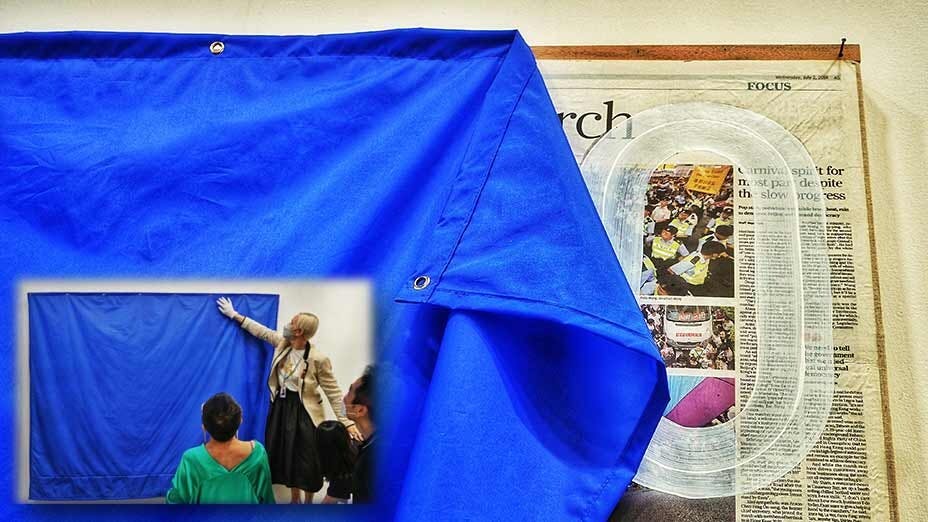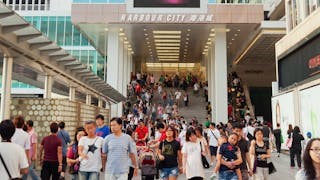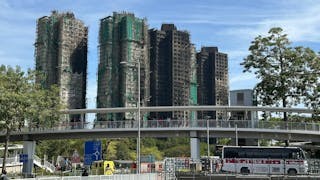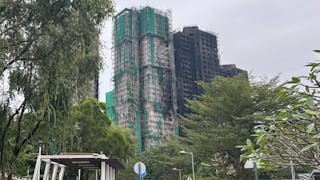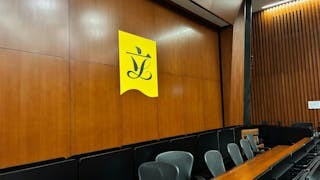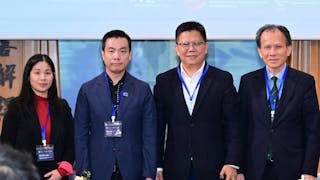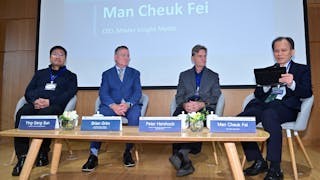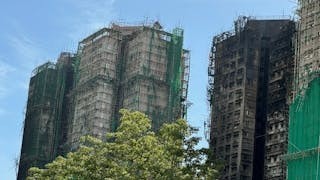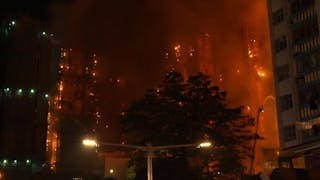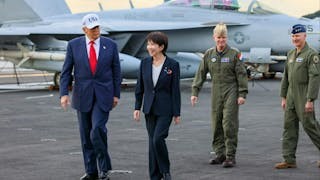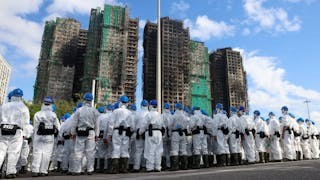巴塞爾藝術展香港展於5月19日至23日在香港會展中心舉行。展出來自23個國家的100多個領先畫廊的藝術品,不到2019年上屆展覽的一半。
這是自北京在香港實施嚴苛的《國家安全法》以來的首次大型藝術展覽,包括中國藝術家艾未未在內的一些評論家說,這導致該市喪失言論自由。
在柏林週末畫廊 Gallery Weekend Berlin 展台,焦點是泰國藝術家 Rirkrit Tiravanija 創作的《無題2018(這場革命將不會被電視轉播,《南華早報》2014年7月2日)》。作品的一個裸露的角落,顯示了報紙報道警方對510000人在香港回歸中國17周年的遊行集會的回應及照片。抗爭者要求真普選和政治改革。這是展覽中涉及敏感主題的極少數作品之一。
當記者問到這件藝術品時,畫廊內容與傳播負責人索菲·弗斯(Sophie Furse)立即掩蓋了所暴露的內容。她堅持這是原來認定的展出方式。
藝術家、作家和電影製片人知道,他們的工作可能會違反《國家安全法》。北京認為涉嫌恐怖主義,分裂國家,顛覆國家或與外國勢力勾結的任何行為均定為違法。美術館謹防冒險,藝術介入政治尤為敏感。
據代表約400會員的藝術家工會稱,一些香港策展人一直在悄悄要求藝術家淡化他們的作品,就如何避免根據《國家安全法》受到起訴向律師進行諮詢,甚至在展示可能敏感的作品之前與警方進行商討。
現場看到警察在檢查藝術品,這是史無前例的舉動。
行政長官林鄭月娥表示,香港政府尊重藝術自由,但國家安全是一條紅線。
Art Basel Hong Kong opens at the Convention and Exhibition Centre on 19-23 May with artwork of over 100 leading galleries from 23 countries and territories, fewer than half the number in the last show in 2019.
This the the first major art show being held since Beijing imposed a draconian national security law in Hong Kong, which some critics including Chinese artist Ai Weiwei say has resulted in a loss of freedom of expression in the city.
At the Gallery Weekend Berlin booth, the centrepiece is the Untitled 2018 (This Revolution will Not be Televised, South China Morning Post, 2 July 2014) by Thai artist Rirkrit Tiravanija. It has an exposed corner that reveals the newspaper report with photos of the police response to the 510,000 who rallied on the 17th anniversary of the handover of Hong Kong back to China. The protesters demanded genuine universal suffrage and political reform. This is one of the very few works that touched on sensitive subjects in the show.
When this reporter asked about this artwork, Sophie Furse, Head of Content & Communications of the gallery proceeded immediately to cover-up the exposed content. She insisted that it was the manner it should be presented.
Artists, writers and filmmakers know that their work could run afoul of the national security law, which criminalises anything that Beijing deems terrorism, secession, subversion or collusion with foreign powers. Art galleries are wary of taking risks and art touching on politics is especially sensitive.
Some Hong Kong curators have been quietly asking artists to tone down their work, consulting with lawyers about how to avoid prosecution under the national security law and even calling the police to discuss potentially sensitive works before exhibiting them, according to the union that represents about 400 Hong Kong artists.
Police officers were seen on site inspecting the artwork, an unprecedented move.
Hong Kong government respects artistic freedom but national security is a red line, said Chief Executive Carrie Lam.



